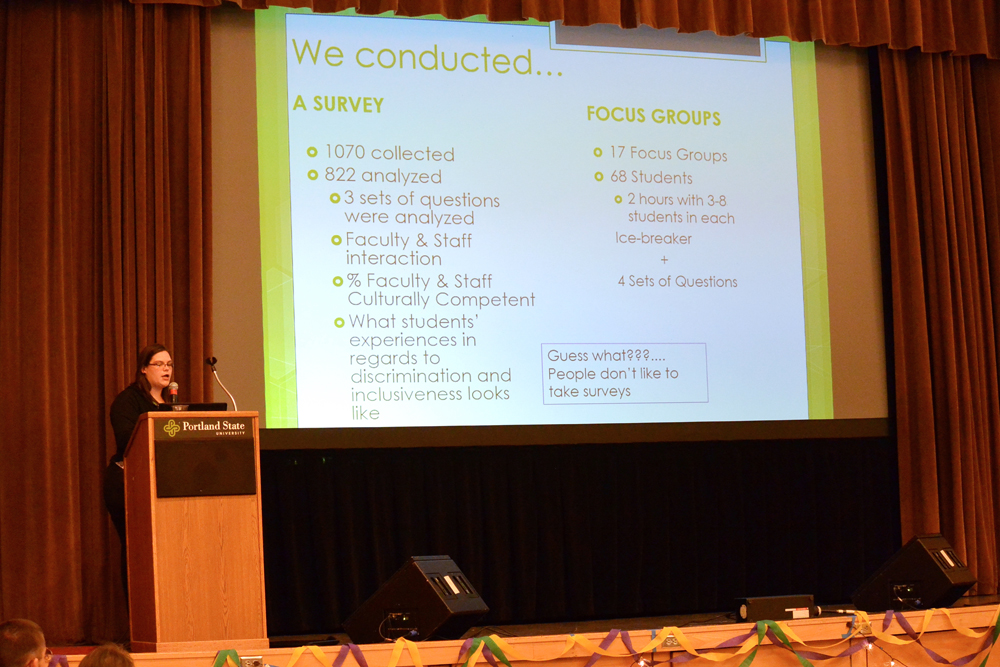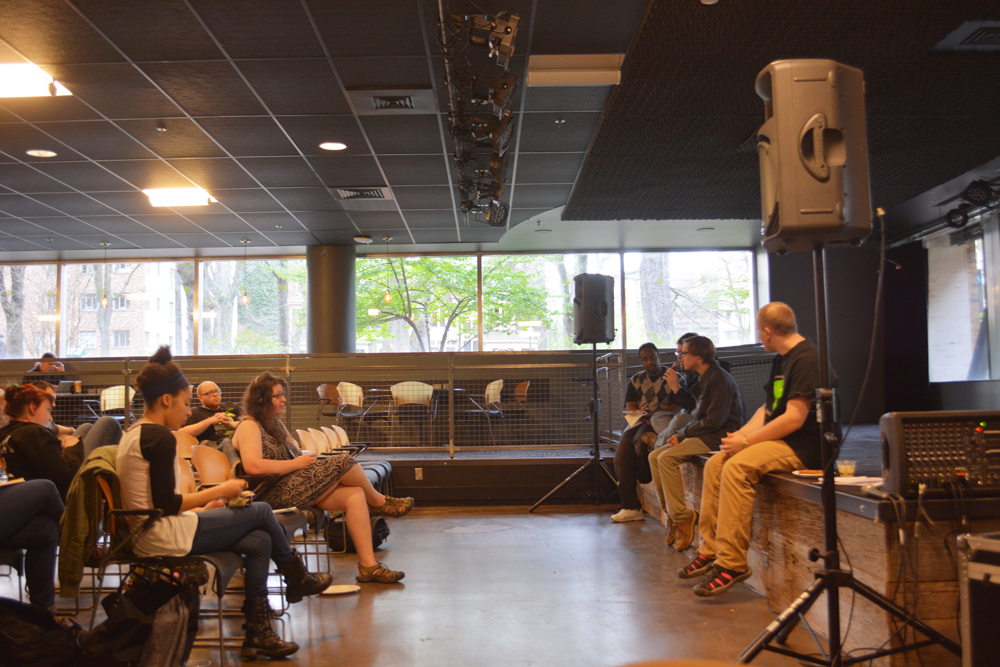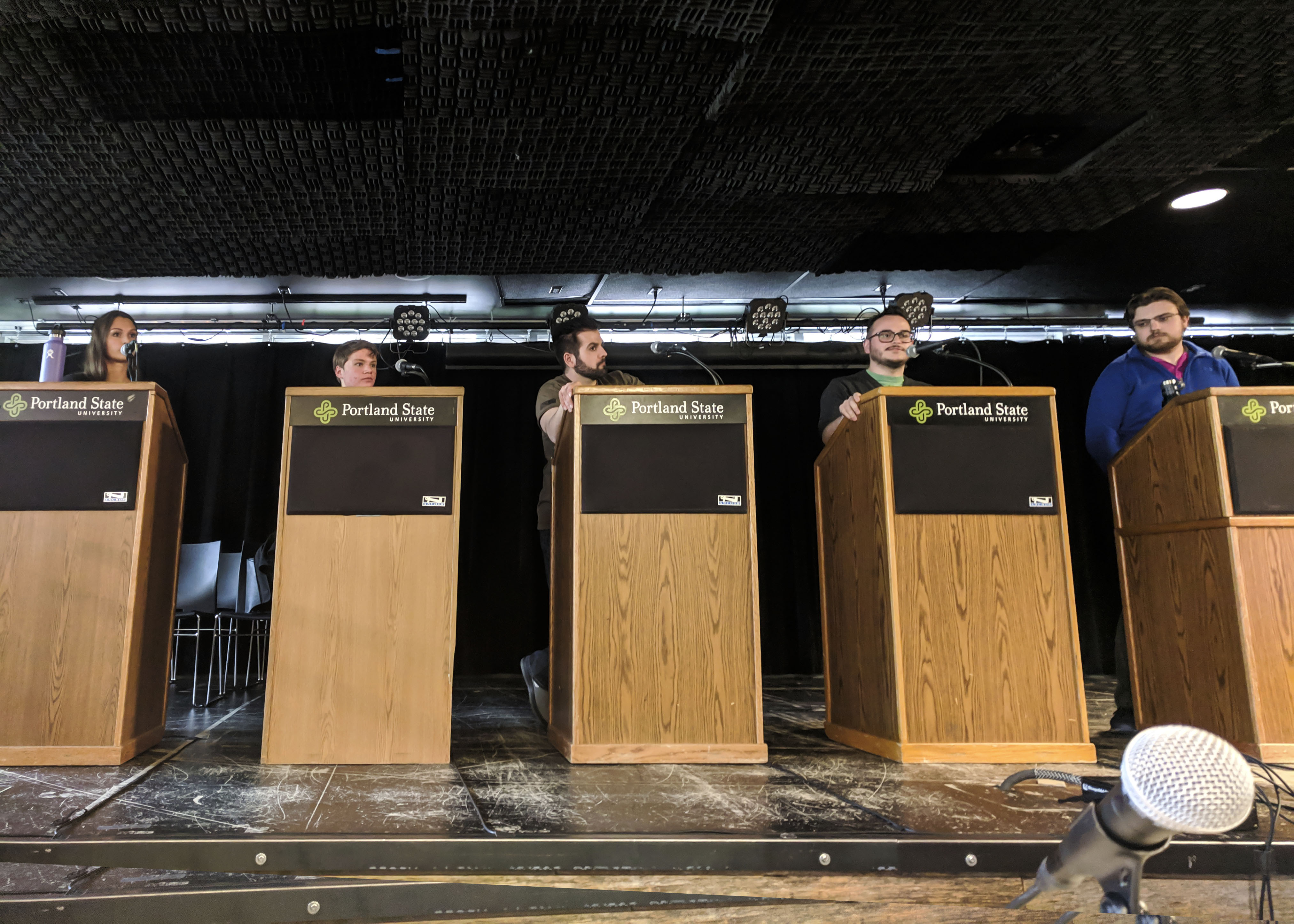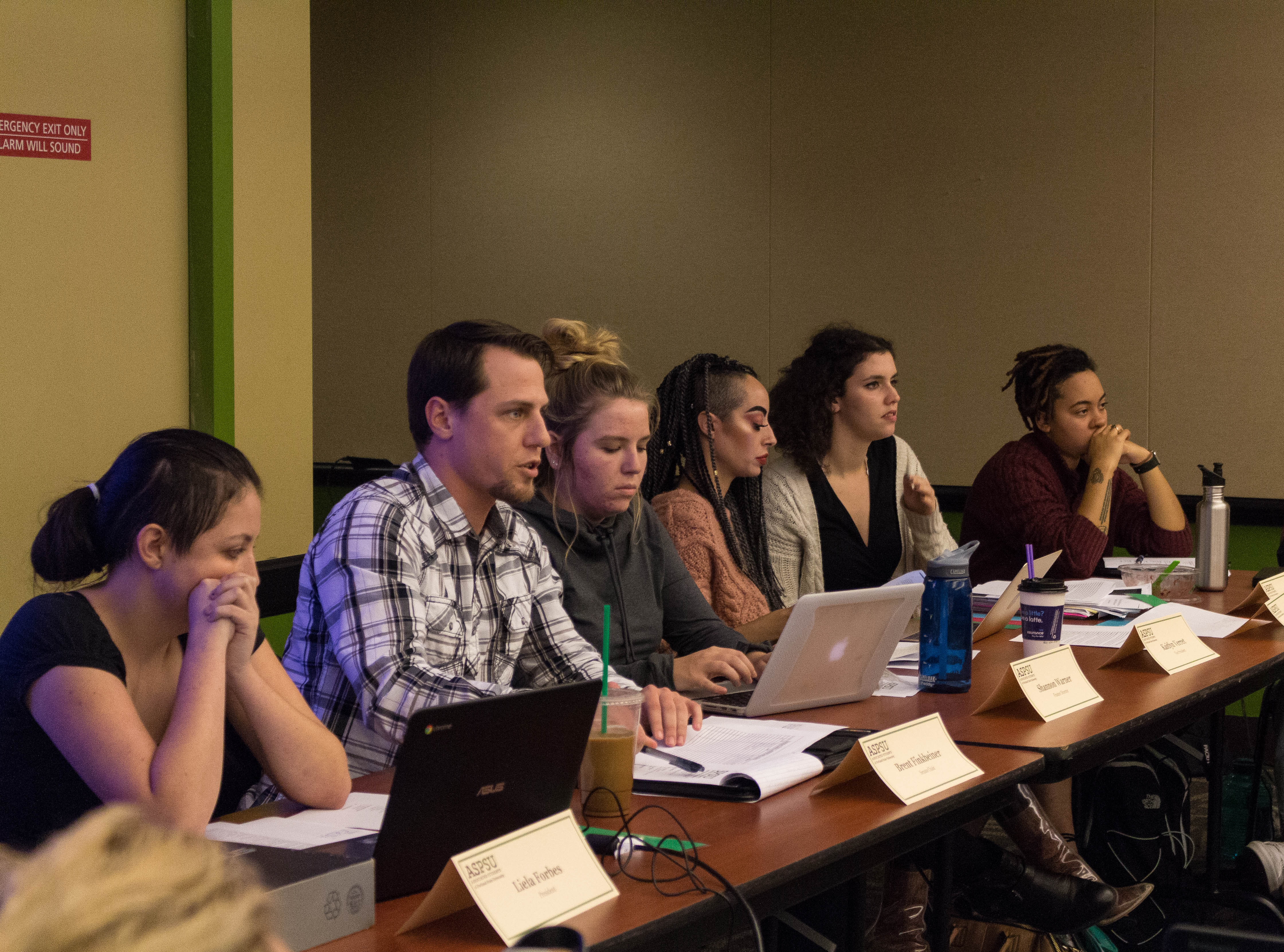Associated Students of Portland State University held a cultural competency celebration on March 2. The event consisted of three workshops held in the Multicultural Center in Smith Memorial Student Union followed by a closing celebration in the SMSU Ballroom.
According to ASPSU’s suggested cultural competency policy, cultural competency is defined as “the ability to effectively and respectfully interact with people of different backgrounds and experiences in a manner that recognizes, affirms and values the worth of individuals, families and marginalized communities, protecting and preserving the dignity of each, thereby creating a welcoming and safer community.”
Policy Committee on Cultural Competency, or PCoCC, was created by ASPSU to draft a policy on cultural competency for PSU.
The celebration began with opening remarks from President Wim Wiewel and Vice President of Academic Affairs and Provost Sona Andrews.
Tia Gomez-Zeller, ASPSU Academic Affairs director, presented the research that ASPSU conducted during Spring and Summer 2014.
“We collected 1,070 surveys and we were able to analyze 822,” Gomez-Zeller said. She explained that the surveys not analyzed were incomplete.
“We looked into the faculty and the staff interaction with the students and we looked, based [on] those interactions, what was the percent of faculty and staff that the students find culturally competent, and finally, we looked more into what student experience looks like in regard to discrimination and inclusiveness,” she said.
According to Gomez-Zeller, ASPSU also conducted 17 focus groups with 68 different students.
From the data collected, Gomez-Zeller said they found that, overall, students tended to say they felt faculty and staff were supportive and accommodating, but when broken down into specific cultural groups there was a difference in feelings about cultural competency.
For example, of students who self-identified as Caucasian, 76 percent agreed that faculty and staff are culturally competent, while only 64 percent of students who identify as any race other than Caucasian agreed faculty and staff are culturally competent. Gomez-Zeller then went on to break down these numbers into more specific races and also looked at different ages, sexual orientations and other groups.
Gomez-Zeller then presented a film featuring students, faculty and staff highlighting why PSU needs cultural competency.
Next, Galen Russel, Equal Rights director and ASPSU Senate Chair, explained PCoCC’s current policy suggestion.
After going over the policy, the audience members were asked to fill out feedback sheets. Some questions included, “How well do you see your values reflected in the policy suggestions?” and, “What parts of the suggested policy seem to be unclear and/or confusing?”
After giving the audience time to answer the questions, Russell and ASPSU senator Melinda Joy gave awards recognizing exceptional work in cultural competency.
The closing celebration ended with Oregon House Representative Joe Gallegos speaking and commending PSU for its work thus far. Gallegos also talked about the history of cultural competency in Oregon and urged the audience to keep moving forward.
Earlier in the evening, student groups and campus resources tabled in the ballroom. The tabling ran from 5–6:30 p.m. and included groups and resource centers such as the Queer Resource Center, the Pacific Islanders Club, the Thai Student Organization, the Veterans Resource Center and many more.
When people arrived at the event, they signed in and received buttons that read, “Bring CULTURAL COMPETENCY to PSU”.
Carly Hollabaugh, a volunteer with the QRC, said cultural competency is important to the QRC because “the [QRC] is inclusive and intersects with people who have their different cultures and different identities.”
“Since we’re the Pacific Islanders Club, and we encompass six different Polynesian islands…I think it’s important that we incorporate other cultures,” said Jessel Galiza, vice president of the Pacific Islanders Club said.
Galiza also said this event may allow for the different student groups to become more involved with each other and learn more about each group’s cultures.
Between 9 a.m. and 3 p.m., a series of workshops on cultural competency and creating culturally competent spaces were held in the Multicultural Center in SMSU.
Gomez-Zeller said the workshops went well.
“We had around 50–60 people participating throughout the workshops, and some people participated in all workshops,” she said.
To learn more about cultural competency and PSUs work so far, or to get involved, visit aspsu.pdx.edu.






